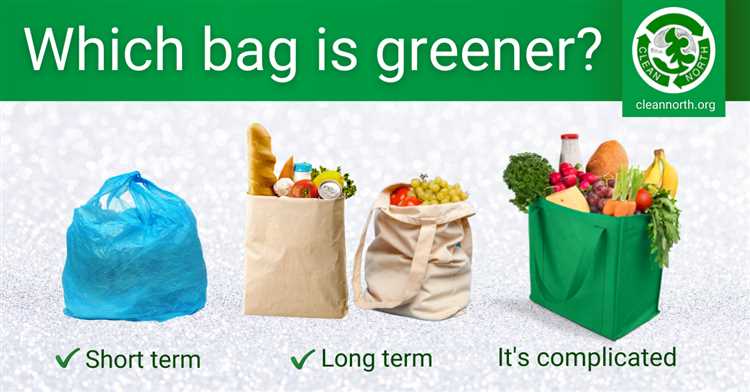Plastic bags have become an integral part of our daily lives, but have we ever stopped to think about the environmental and economic impact they have on our planet? It’s time to take a closer look at the costs and consequences of using these convenient yet harmful products.
From an environmental perspective, plastic bags pose a significant threat to our ecosystems and wildlife. They are not biodegradable and can take hundreds of years to break down, leading to litter that clogs our streets, parks, and waterways. Marine animals often mistake plastic bags for food, which can result in suffocation and starvation. Moreover, the production of plastic bags requires vast amounts of energy and releases harmful greenhouse gases into the atmosphere, contributing to climate change.
But it’s not just the environment that suffers – our economy also pays a price for the widespread use of plastic bags. Retailers must factor in the cost of supplying bags to customers, a cost that is ultimately transferred to us as consumers. By implementing a small fee for plastic bags, consumers are encouraged to bring their reusable bags, decreasing the demand for single-use plastics. This not only saves money in the long run but also creates opportunities for businesses that produce and sell reusable alternatives. By shifting towards a more sustainable model, we can stimulate local economies and create jobs in the green sector.
- Why Pay for Plastic Bags?
- Environmental Impact of Plastic Bags
- Economic Benefits of Charging for Plastic Bags
- 1. Revenue Generation
- 2. Cost Reduction
- 3. Consumer Behavior Change
- Conclusion
- Reducing Plastic Waste
- Question-answer:
- Why should we pay for plastic bags?
- How does paying for plastic bags benefit the environment?
- What are the economic benefits of paying for plastic bags?
- How does charging for plastic bags reduce plastic pollution?
- Are there any countries or cities where paying for plastic bags is already implemented?
Why Pay for Plastic Bags?

One of the main reasons why we should pay for plastic bags is their negative impact on the environment. Plastic bags are not biodegradable and can take hundreds of years to decompose. When they do break down, they release harmful chemicals into the soil and water, posing a threat to wildlife and ecosystems. By charging a fee for plastic bags, we can encourage people to use reusable alternatives, such as cloth bags, which are much more environmentally friendly.
Another important reason to pay for plastic bags is the economic benefits it can bring. The production and disposal of plastic bags require significant resources and energy, contributing to carbon emissions and climate change. By charging for plastic bags, we can reduce their consumption and save resources, ultimately leading to cost savings for both businesses and consumers. Additionally, the revenue generated from the fees can be used to fund environmental initiatives and raise awareness about the importance of sustainable practices.
Furthermore, paying for plastic bags promotes a sense of responsibility and accountability among consumers. When we have to pay for something, we are more likely to think twice before using it. This can help reduce the overall demand for plastic bags and encourage individuals to adopt more eco-friendly habits. It also sends a strong message to plastic bag manufacturers and retailers that the use of plastic bags should be minimized.
| Environmental Benefits | Economic Benefits | Responsibility and Accountability |
|---|---|---|
| Reduces pollution and waste | Saves resources and reduces costs | Promotes eco-friendly habits |
| Protects wildlife and ecosystems | Funds environmental initiatives | Encourages sustainable practices |
| Minimizes carbon emissions and climate change | Raises awareness about sustainability | Send a message to manufacturers and retailers |
In conclusion, paying for plastic bags is not only beneficial for the environment but also for our economy and personal responsibility. By charging a fee for plastic bags, we can reduce their usage, promote sustainable alternatives, and contribute to a cleaner and greener future.
Environmental Impact of Plastic Bags
Plastic bags have a significant environmental impact, contributing to pollution and harming ecosystems. Here are some key ways in which plastic bags affect the environment:
- Waste and litter: Plastic bags are a major source of waste and litter, often ending up in landfills or polluting waterways. They can take hundreds of years to decompose, leading to long-lasting environmental damage.
- Resource consumption: The production of plastic bags requires significant amounts of non-renewable resources, such as oil and natural gas. This contributes to the depletion of these resources and exacerbates climate change.
- Marine pollution: When plastic bags enter rivers and oceans, they pose a serious threat to marine life. Animals can mistake them for food, leading to ingestion and potential suffocation or entanglement.
- Microplastic contamination: As plastic bags break down over time, they release microplastic particles that can enter the food chain. These particles are harmful to marine organisms and can ultimately impact human health.
- Carbon emissions: The transportation and production of plastic bags contribute to greenhouse gas emissions, further contributing to climate change. By reducing plastic bag usage, we can help mitigate these emissions.
To address the environmental impact of plastic bags, many countries and cities have implemented measures such as plastic bag fees or bans. By reducing the use of plastic bags and encouraging alternatives like reusable bags, we can help minimize the harmful effects on the environment and create a more sustainable future.
Economic Benefits of Charging for Plastic Bags

Charging for plastic bags has a number of economic benefits that can positively impact both businesses and the overall economy.
1. Revenue Generation
By charging for plastic bags, retailers and businesses can generate an additional source of revenue. This can be especially beneficial for smaller businesses that operate on slim profit margins.
The revenue generated from the sale of plastic bags can be used to offset the costs associated with implementing more eco-friendly packaging alternatives, such as paper bags or reusable bags. It can also be invested in other sustainable initiatives, such as implementing recycling programs or supporting community environmental projects.
2. Cost Reduction
Using and disposing of plastic bags comes with its own set of costs for businesses. By charging for plastic bags, businesses can reduce their expenses by encouraging customers to bring their own reusable bags or opt for alternative packaging options.
Furthermore, charging for plastic bags can help businesses save money on waste management and disposal fees. Since plastic bags can take hundreds of years to decompose, they have a significant impact on landfill space and can contribute to environmental pollution.
3. Consumer Behavior Change
Charging for plastic bags can help shift consumer behavior towards more sustainable practices. When individuals are required to pay for plastic bags, they become more conscious of their consumption habits and are more likely to bring their own bags or choose alternative options.
This shift in consumer behavior can have long-term economic benefits by reducing the demand for plastic bags and the associated costs of production, distribution, and disposal. It can also drive innovation in the packaging industry, as businesses strive to find more environmentally friendly alternatives.
Conclusion
The economic benefits of charging for plastic bags go beyond immediate revenue generation. It can help businesses reduce costs, encourage sustainable practices, and drive innovation. By implementing such policies, we can create a more environmentally and economically sustainable future.
Reducing Plastic Waste

Reducing the amount of plastic waste that ends up in our environment is crucial for both the health of our ecosystems and our own well-being. Plastic pollution has become a major global concern, as it is one of the leading causes of environmental degradation. To combat this issue, various strategies can be implemented:
1. Implementing Bans and Taxes: Many countries and cities have already introduced bans or taxes on single-use plastic bags, encouraging people to switch to reusable alternatives. This helps to reduce the demand for plastic bags and encourages individuals to be more mindful of their consumption habits.
2. Promoting Recycling: Encouraging individuals and businesses to recycle plastic products can significantly reduce the amount of plastic waste that ends up in landfills or the natural environment. Increasing access to recycling facilities and educating the public about the importance of recycling can make a significant impact.
3. Supporting Innovative Alternatives: Investing in the development and promotion of sustainable alternatives to plastic can help reduce plastic waste. Biodegradable materials, such as paper or compostable plastics, can be used as substitutes for single-use plastic products.
4. Raising Awareness: Educating the public about the environmental consequences of plastic waste is crucial for bringing about change. Campaigns and initiatives that highlight the negative impact of plastic pollution can encourage individuals to adopt more sustainable practices.
5. Collaborating with Businesses: Partnering with businesses to adopt sustainable practices, such as reducing packaging waste or using eco-friendly materials, can greatly decrease plastic waste. By working together, we can find innovative solutions and reduce our reliance on single-use plastics.
By implementing these strategies, we can collectively work towards reducing plastic waste and protecting our environment for future generations.
Question-answer:
Why should we pay for plastic bags?
Paying for plastic bags has several environmental and economic benefits. First, it helps to reduce the use of single-use plastic bags, which are a major contributor to plastic pollution. By charging for bags, people are encouraged to bring their own reusable bags, reducing the demand for plastic bags and lowering the amount of plastic waste that ends up in landfills and oceans.
How does paying for plastic bags benefit the environment?
Paying for plastic bags benefits the environment by reducing the amount of plastic waste that is produced. Plastic bags take hundreds of years to decompose, and when they end up in landfills or oceans, they contribute to pollution and harm wildlife. By charging for bags, people are encouraged to bring reusable bags, which are a more sustainable option.
What are the economic benefits of paying for plastic bags?
Paying for plastic bags can have economic benefits for both consumers and businesses. For consumers, it encourages them to be more conscious about their consumption and to choose reusable bags, which can save money in the long run. For businesses, it can reduce the costs associated with providing free bags and potentially increase profits.
How does charging for plastic bags reduce plastic pollution?
Charging for plastic bags reduces plastic pollution by decreasing the demand for single-use plastic bags. When people have to pay for bags, they are more likely to bring their own reusable bags or choose alternatives like paper bags. This means fewer plastic bags being produced and eventually ending up in landfills or oceans.
Are there any countries or cities where paying for plastic bags is already implemented?
Yes, there are many countries and cities around the world that have already implemented policies to charge for plastic bags. Examples include countries like Ireland, Australia, and Bangladesh, as well as cities like San Francisco, Seattle, and London. These places have seen significant reductions in plastic bag usage and have made positive strides in reducing plastic pollution.